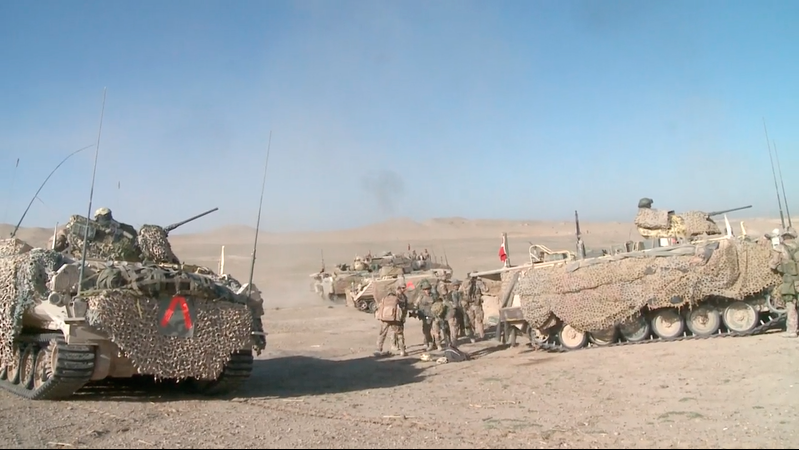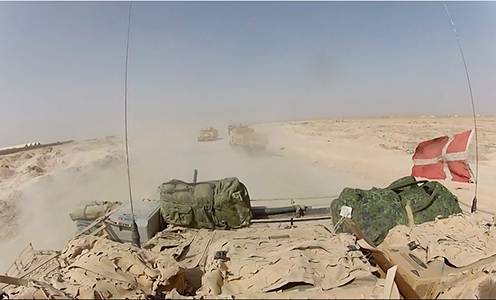No strategy behind Denmark’s military engagement – we follow the United States
It is very much government officials, ministers and the Danish Defence that stage the political decisions to go to war. Denmark's military engagement is only to a lesser extent based on strategic choices and long-term analyses – rather, it is a desire to follow the United States' priorities that sets the agenda.
When Denmark goes to war, the Foreign Policy Committee of the Danish Folketing does not play any significant part. The decisions to engage in war and Denmark's specific commitment are shaped by key ministers, government officials and representatives of the Defence in dialogue with allies, most notably the United States. A string of minor decisions gradually narrows politicians' scope for action and raises the political implications of choosing other options.

This is one of the conclusions of the analysis of the political decisions that led to Denmark's engagement in the wars in Kosovo, Afghanistan and Iraq. Researchers Rasmus Mariager and Anders Wivel, along with several colleagues, have had permission to investigate the decision-making processes that led to the Danish engagement in Kosovo, Iraq and Afghanistan.
The Danish Parliament plays little role
“The Government has adopted a minimalist information practice towards the Foreign Policy Committee. The Government typically consults with the Foreign Policy Committee late in the process in connection with decisions that require the Committee’s involvement. Informal contacts between the Government and the Folketing play an important part in the decision-making process,” says Associate Professor and historian Rasmus Mariager, who has headed the research together with Professor MSO Anders Wivel from the Department of Political Science.
The analysis shows Denmark's military engagement as being based only to a lesser extent on strategic choices and long-term analyses. At the same time, Denmark's war engagement is a general reflection of policymakers’ willingness to accommodate American requests for military contributions. It is not a question of direct pressure from the United States with threats of sanctions or promises of gains.
The report recommends, among other things, the creation of a cross-sectional analysis unit in the general government administration with a view to strengthening a systematic gathering of experience, ensuring the link between military engagements and Denmark’s foreign-policy objectives and to assessing the demand for Danish military engagement in the short and medium term.

Read the full report and the researchers' presentation at www.krigsudredning.ku.dk (in Danish)
Contact
Rasmus Mariager, Research Director, Associate Professor, PhD & Dr. Phil., Saxo Institute, University of Copenhagen, email: rmariager@hum.ku.dk, Tel. + 45 51299606
Anders Wivel, Deputy Research Director, Professor (MSO), PhD, Department of Political Science, University of Copenhagen, email: aw@ifs.ku.dk, Tel. + 45 31727081
Analysis of Denmark's military engagement
On 25 May 2016, a majority of the Folketing agreed to initiate an independent investigation of the historical process concerning Denmark's military engagement in Kosovo, Iraq and Afghanistan in order to identify the background for the political decisions on Denmark’s engagement and ensure a true and fair description and learning for posterity. Read more at www.krigsudredning.ku.dk (in Danish).
